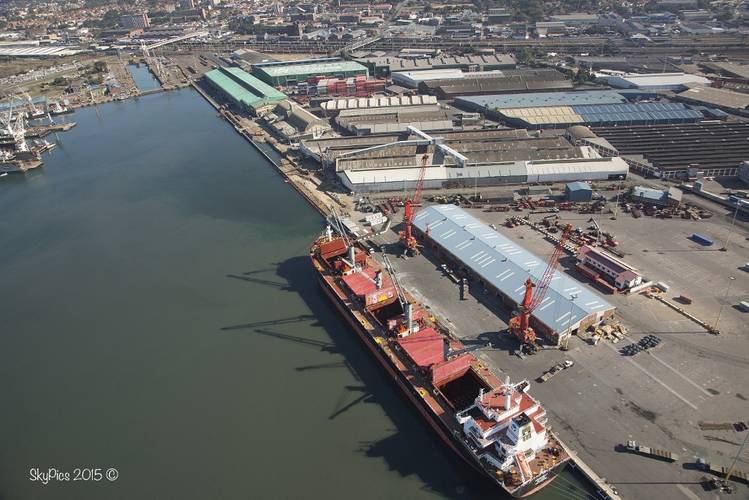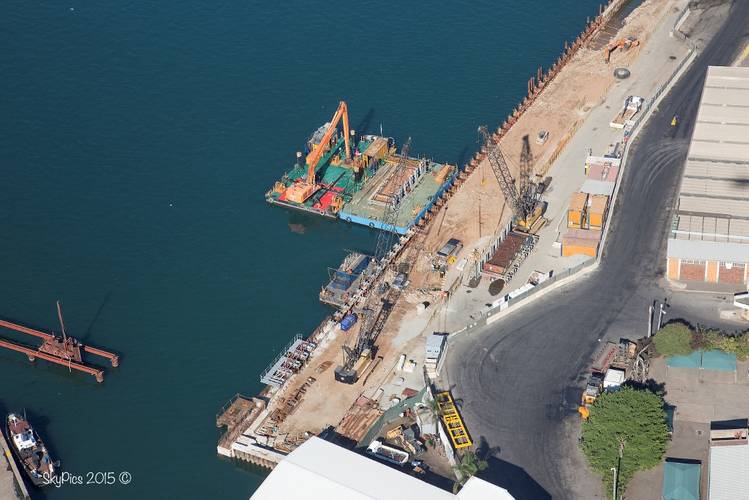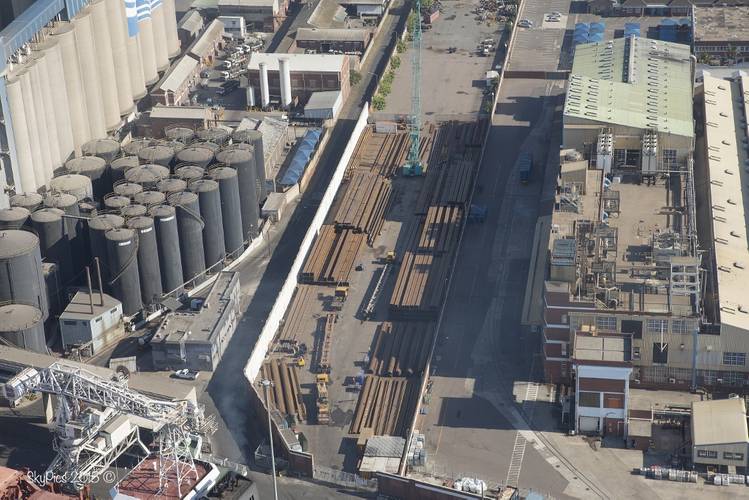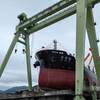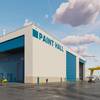Transnet Capital Projects (TCP) – which is overseeing Transnet National Ports Authority’s project to reconstruct the quay walls and deepen berths at Maydon Wharf – recently achieved a safety milestone of 1,000,000 man hours without a lost time injury (LTI) on the reconstruction and deepening of Maydon Wharf Berth 1- 4, 13 & 14 Project.
Shane Perumal, Project Manager, said, “There has been a huge safety commitment from the project managers, the main contractor Stefanutti Stocks AXSYS Joint Venture, and subcontractors, to provide continual training, preventative programs, communication of safe work practices, sharing of lessons learned from observations and incidents and good site safety vigilance. This ensures that everyone - from laborers to senior management- works safely every day.”
He said this was notwithstanding the special nature of work being executed on this project and the tight deadlines.
The R1.6 billion project forms an integral part of Transnet’s Market Demand Strategy which aims to enable the effective, efficient and economic functioning of an integrated port system to promote economic growth.
It involves the reconstruction and deepening of six of the 15 berths in this precinct. Once completed the berths will have a draught of 14.5 m enabling them to handle vessels with draughts up to 13 m, however the Maydon Wharf entrance channel will still need to be deepened thereafter to enable these vessels to sail in fully laden.
Maydon Wharf is the largest break bulk and dry bulk handling precinct in the Port of Durban covering 120 ha of port land. The reconstruction project aims to ensure safe operations, meet the needs of larger vessels calling at the port and enable increased throughputs.
The quay walls in the precinct were originally designed to handle vessels of approximately 20,000 DWT versus the 55,000 DWT vessels now calling. Bigger vessels call mainly half laden due to the current draught and width restrictions.
Berths 1-2 and 13-14 are currently under construction, following the reconstruction of berth 12, which was completed in November 2012. Berths 3-4 will be under construction early in 2016.
The work has involved demolition of paving, rail track work and services, construction of new steel sheet piled quay walls, demolition of existing piled crane beams, extraction of timber, concrete piles and a limited number of steel sheet piles and removal of the existing quay wall and capping beams.
Work includes driving of inclined grouted steel anchor piles (being used in South Africa for the first time), backfilling behind the quay walls, construction of new reinforced concrete capping beams, supply and installation of bollards, fenders, ladders and quay services, construction of railway tracks, layer works and paving, dredging of material adjacent to the berths and construction of rock scour protection.
The main challenges have been balancing operations and the project, including site access, executing work around the existing ship loader foundations and conveyor, as well as obstructions and incorrect as built information supplied. The project team has also had to contend with strong winds and wakes formed by tugs operating in the precinct affecting floating equipment used for construction.
As a result the team has implemented night and weekend shifts and mobilized additional plant to ensure that the project remains on track.
Among other achievements to date include a satisfactory audit report, the successful pull out test on the anchor pile system and the completion of all piling and the new cope on Berth 1, 2 & 13. A record 4,500 metric tons of steel was offloaded, transported and stacked during a continuous 84 hour operation.
“This safety milestone of 1 million hours without an LTI could not have been achieved without an enormous amount of hard work and effort by everyone working on the project,” said Perumal.






